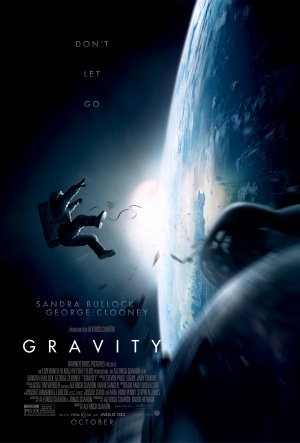 by GAVIN MULLEN
by GAVIN MULLEN
In the opening scenes of the recent and popular movie, Gravity, astronaunts George Clooney and Sandra Bullock, while weightlessly suspended in space and quietly tending to their task of repairing a satellite, are hard hit by an unexpected and powerful blast of debris that sets them wildly and dangerously off course. Sandra Bullock, in a terrifying moment, is flung helplessly into endless space, untethered and spinning out, beyond any means of safety and security.
While it is space debris from a distant explosion that unhinges Bullock in the movie Gravity, it is the everyday headaches of lost dry cleaning, unappreciative children, unpaid bills, or perhaps the larger hits, like a husband who runs off, or a house that sets fire, that blasts us off course and sets us spinning, as it were, untethered through unknown psychological territory. It is here, in our fear and confusion, that all known maps seem obsolete as a means to chart inner space.
If we are lucky, there will be a George Clooney character somewhere nearby, who knows how to navigate space, and is able to get a secure hold on us even as we spin out of control. In our own lives, the real lives that we are all living on earth, this part might be played by our yoga teachers, river guides, coaches or therapists, who, like in the movie, we might attach ourselves to as we try to regain our balance and begin to reflect on what just happened.
This reflection might begin, as it does in Gravity, once Clooney tethers his space suit to Bullocks’ and in a move towards safety, he begins, like any good therapist might, to ask Bullock about herself. He asks, where do you live, what would you be doing if you were not miles from home in distant space. She answers, and they talk more and occasionally they look towards earth with wonder, surprised at this new and different perspective of such a familiar place. Then the talk takes a deeper turn, when Bullock tells us of her real blast, the one that really set her off course. No space debris this hit, this hit was the sudden and unimaginable loss of her four-year-old daughter. So we learn that it is not space that needs to be navigated, but grief.
So this is how we navigate our own unexpected hits, our losses, our grief, our own blasts that sets us adrift and off course. We navigate by letting our river guides lead us through the rivers of our imagination; we talk to trusted figures who will travel with us and help us to reflect as we regain our balance.
We go to our yoga mats and we breath. We do a handstand to gain another, perhaps less complicated, more wondrous, perspective. And as we move through asana with our trusted teachers, we begin to reflect on the inner space, that voice inside that allows us to let go of our precious grief and grievance.






















One Response to “On Gravity, Space and Self-Reflection”
February 27, 2014
Jim FischBravo, Gavin. That is a beautiful and profound reading of the movie. Your insights are much appreciated.